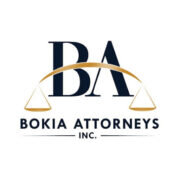Best Housing, Construction & Development Lawyers in Midrand
Share your needs with us, get contacted by law firms.
Free. Takes 2 min.
Free Guide to Hiring a Real Estate Lawyer
List of the best lawyers in Midrand, South Africa
About Housing, Construction & Development Law in Midrand, South Africa
Midrand, situated in the heart of Gauteng Province, is a fast-growing urban area known for its business centers, residential estates, and dynamic property development sector. Housing, Construction & Development law in Midrand covers the legal frameworks governing residential housing, property development, and building construction. This field encompasses a range of legal issues, including property rights, zoning regulations, building codes, tenant and landlord relationships, developer responsibilities, and dispute resolution processes. As Midrand continues to expand, understanding the local legal landscape is critical for homeowners, developers, tenants, landlords, and investors alike.
Why You May Need a Lawyer
Legal matters related to housing, construction, and development can be complex and may involve high-value transactions or disputes. You may require a lawyer for various reasons, such as:
- Drafting, reviewing, or negotiating sale or lease agreements for residential or commercial properties
- Addressing disputes between landlords and tenants, including evictions and non-payment issues
- Resolving building contract disputes between contractors and property owners
- Understanding zoning law or municipal bylaw restrictions affecting property use or development
- Securing planning permissions, building permits, or compliance certificates
- Environmental compliance and impact assessments for new developments
- Addressing issues related to building defects, poor workmanship, or non-compliance with construction standards
- Sections 4, 7, and 21 Home Owners Associations issues in estates and sectional title schemes
- Representing parties in litigation or alternative dispute resolution involving property matters
- Dealing with expropriation, land claims, or boundary disputes
Local Laws Overview
Housing, Construction & Development in Midrand is governed by a combination of national laws, provincial regulations, and municipal by-laws. Key legal aspects include:
- The Constitution of South Africa: Establishes property rights and housing as a basic need.
- National Building Regulations and Building Standards Act: Sets out standards for safe and approved building practices.
- Sectional Titles Act and Community Schemes Ombud Service Act: Regulate sectional title properties and community living arrangements, common in Midrand's modern estates.
- Rental Housing Act: Provides laws that protect both landlords and tenants, including rights, obligations, and dispute channels.
- Town Planning and Zoning By-Laws: The City of Johannesburg Metropolitan Municipality (under which Midrand falls) manages property zoning, land use, and development controls.
- Environmental Laws: Environmental Management Acts ensure that developments meet environmental standards, particularly important due to Midrand’s mixed-use developments near sensitive environmental areas.
- Home Owners Associations (HOA) Regulations: Governs conduct and management in residential estates and developments in Midrand.
- Building Plan Approval Process: Construction or development projects must have their plans approved by the local municipality.
Frequently Asked Questions
What are the main legal steps to buying residential property in Midrand?
The process includes signing an offer to purchase, securing finance, conducting due diligence (property inspections and title checks), registering the property at the Deeds Office, and ensuring all rates and taxes are paid up. It is recommended to use a conveyancer to manage the transaction.
Do I need permission to build on my property in Midrand?
Yes, any new building, extension, or significant alteration requires approved building plans from the City of Johannesburg Metropolitan Municipality. Unauthorized construction can lead to fines or orders to demolish the structure.
What are my rights as a tenant in Midrand?
Tenants have the right to a safe, habitable property and protection against unlawful eviction. The Rental Housing Act governs the relationship, and disputes can be escalated to the Rental Housing Tribunal if necessary.
How are landlord and tenant disputes resolved?
Most disputes are resolved through negotiation or mediation. If unresolved, matters can be referred to the Rental Housing Tribunal, which offers a free and legal means of resolving rental disputes.
What is a Home Owners Association (HOA) and how does it affect me?
An HOA manages the shared interests of members in residential estates, including enforcing rules, collecting levies, and maintaining communal facilities. Buying property in an estate often requires adherence to the HOA's rules and payment of levies.
What are common issues in construction contracts?
Disputes often arise regarding delays, quality of work, payment terms, scope changes, and non-compliance with agreed plans or building standards. Clear contracts and oversight are essential, and in case of disagreements, legal remedies may be pursued.
How can I check zoning regulations affecting my property in Midrand?
Zoning information can be obtained from the City of Johannesburg Town Planning Department. Zoning determines permitted uses, building heights, density, and coverage for each property.
Can I be held liable for my builder’s mistakes?
If a contractor is negligent or breaches contract terms, property owners can seek recourse for damages. However, ensuring that builders are registered and contracts specify responsibilities can mitigate risks.
What are the legal remedies for building defects?
Owners can request rectification of defects from the builder, usually within a specified warranty period. If the builder fails to remedy, owners may claim damages through court or the National Home Builders Registration Council (NHBRC).
What do I do if I receive a demolition notice from the city?
Act promptly and consult a legal professional. Demolition notices are usually issued for unauthorized or unsafe structures. Legal advice can help you challenge the notice or seek approval/regularization for the construction.
Additional Resources
If you need further guidance or information, the following resources can be helpful:
- City of Johannesburg Metropolitan Municipality - Development Planning Department: For zoning, building approvals, and by-law enquiries.
- Rental Housing Tribunal: Free services for resolving rental disputes.
- National Home Builders Registration Council (NHBRC): Oversees building standards and provides a complaints process for defective housing.
- Community Schemes Ombud Service (CSOS): For disputes involving sectional title schemes and community living arrangements.
- Law Society of South Africa: For referrals to qualified attorneys specializing in property and construction law.
Next Steps
If you are facing legal issues or require advice relating to housing, construction, or development in Midrand, consider the following steps:
- Gather all documentation related to your matter, such as contracts, correspondence, title deeds, and plans.
- Consult a local legal professional with experience in housing and construction law to assess your situation.
- If your issue involves a regulatory body or requires mediation, reach out to the relevant authority, such as the Rental Housing Tribunal or NHBRC.
- Be proactive in seeking legal advice early to prevent escalation and protect your interests.
- Stay informed of your rights and responsibilities within the Midrand municipality and ensure compliance with all required laws and regulations.
Professional legal guidance can help you navigate complex processes, resolve disputes efficiently, and ensure the success of your property transaction or development project in Midrand.
Lawzana helps you find the best lawyers and law firms in Midrand through a curated and pre-screened list of qualified legal professionals. Our platform offers rankings and detailed profiles of attorneys and law firms, allowing you to compare based on practice areas, including Housing, Construction & Development, experience, and client feedback.
Each profile includes a description of the firm's areas of practice, client reviews, team members and partners, year of establishment, spoken languages, office locations, contact information, social media presence, and any published articles or resources. Most firms on our platform speak English and are experienced in both local and international legal matters.
Get a quote from top-rated law firms in Midrand, South Africa — quickly, securely, and without unnecessary hassle.
Disclaimer:
The information provided on this page is for general informational purposes only and does not constitute legal advice. While we strive to ensure the accuracy and relevance of the content, legal information may change over time, and interpretations of the law can vary. You should always consult with a qualified legal professional for advice specific to your situation.
We disclaim all liability for actions taken or not taken based on the content of this page. If you believe any information is incorrect or outdated, please contact us, and we will review and update it where appropriate.









